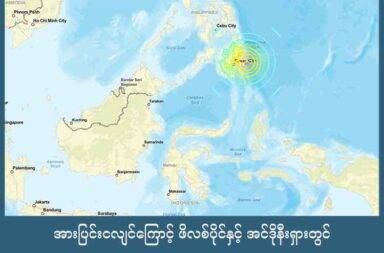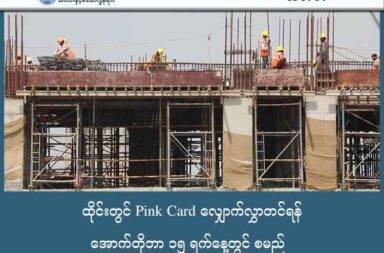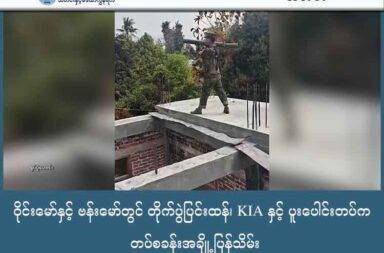Journalists: Conviction of Reuters Duo a Threat to Human Rights Reporting in Burma
‘Journalists are not protected by law,’ one reporter said, following Wa Lone and Kyaw Soe Oo’s verdict.
By NETWORK MEDIA GROUP (NMG)
Tuesday, September 4, 2018
A verdict sentencing two Reuters journalists to seven years in prison is indicative of the severe restrictions facing reporters in Burma, members of the media said.
Thet Oo Maung (Wa Lone), 32, and Kyaw Soe Oo, 28, were found guilty of violating the Official Secrets Act in their reporting on a massacre by security forces of Rohingya Muslims in a mass grave in Rakhine State. They have been held in Yangon’s Insein Prison since December 2017.
Myanmar Journalist Network (MJN) general secretary U Myint Kyaw said that the message sent by the authorities from the conviction was that “media must not try to report on human rights violations in Rakhine State,” and was effectively, “restriction, prohibition, and censorship on media freedom.”
“If the media wants to report it, the media must be brave enough to face a prison term,” he said.
The lawyer for the two Reuters journalists, U Than Zaw Aung, said that the verdict would “slow the democratic transition in the country” and that it also demonstrated the “deterioration of the rule of law and an independent judicial system.”
In addition to demanding Wa Lone and Kyaw Soe Oo’s release, media coalition Burma News International (BNI) released a statement demanding that laws and by-laws which restrict the freedom to pursue news and carry out reporting must be reviewed, and that the Union government must establish an independent and fair judiciary.
“This shows that journalists are not protected by law and this is a huge challenge in a democratic transition,” said BNI policy board committee member U Ko Ko Zaw.
MJN’s U Myint Kyaw said that the use of the Official Secrets Act to prosecute journalists presents a “huge problem.”
“Journalists will be punished using this in the future if they try to report about human rights violations in the country. It’s important to advocate and campaign to amend the Official Secrets Act,” he explained.
Monday’s sentence was handed down despite calls throughout the nine-month trial by international rights organizations, activists, and press freedom advocates demanding Wa Lone and Kyaw Soe Oo’s release.


